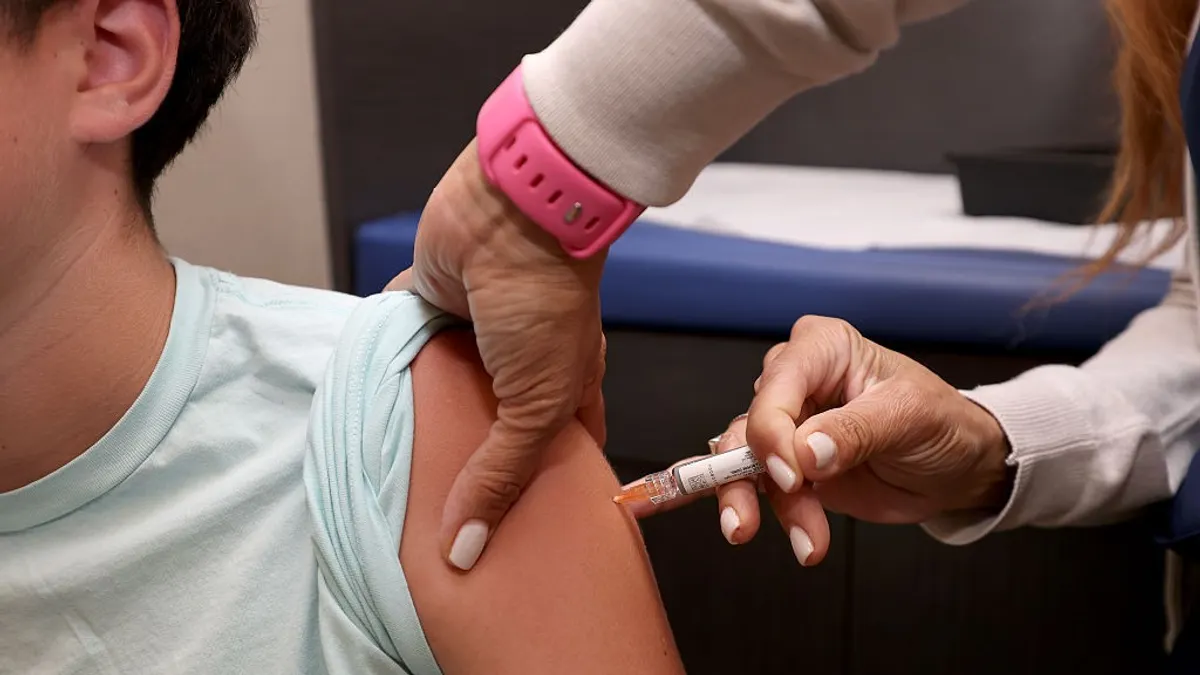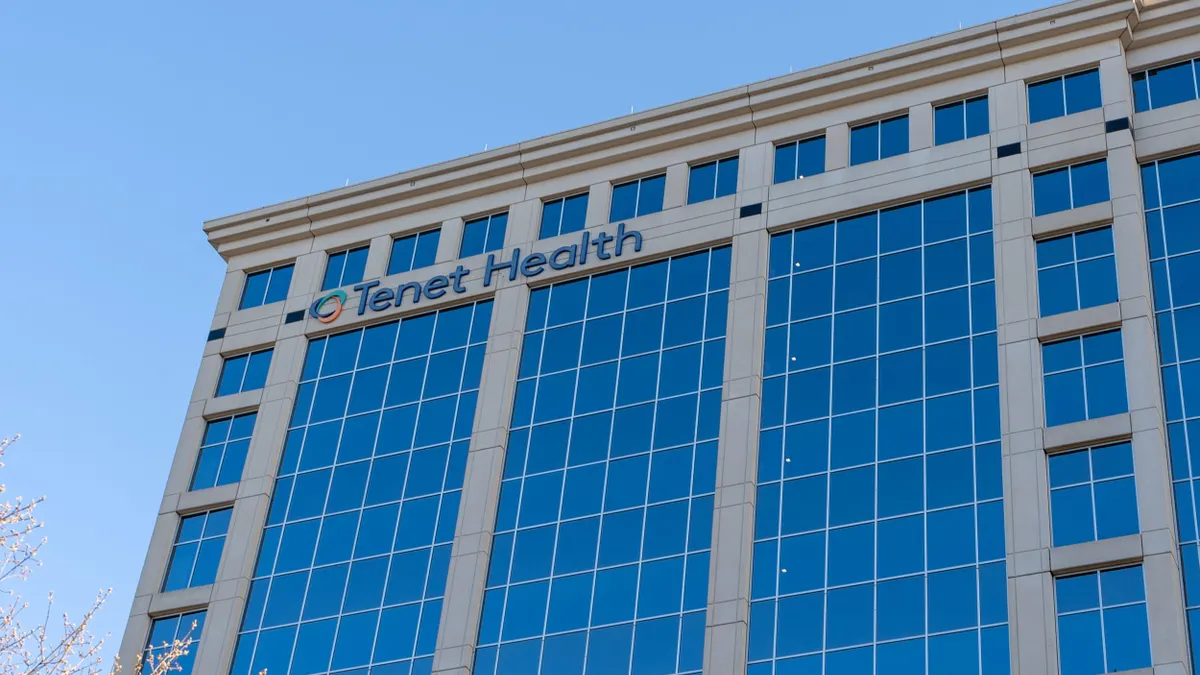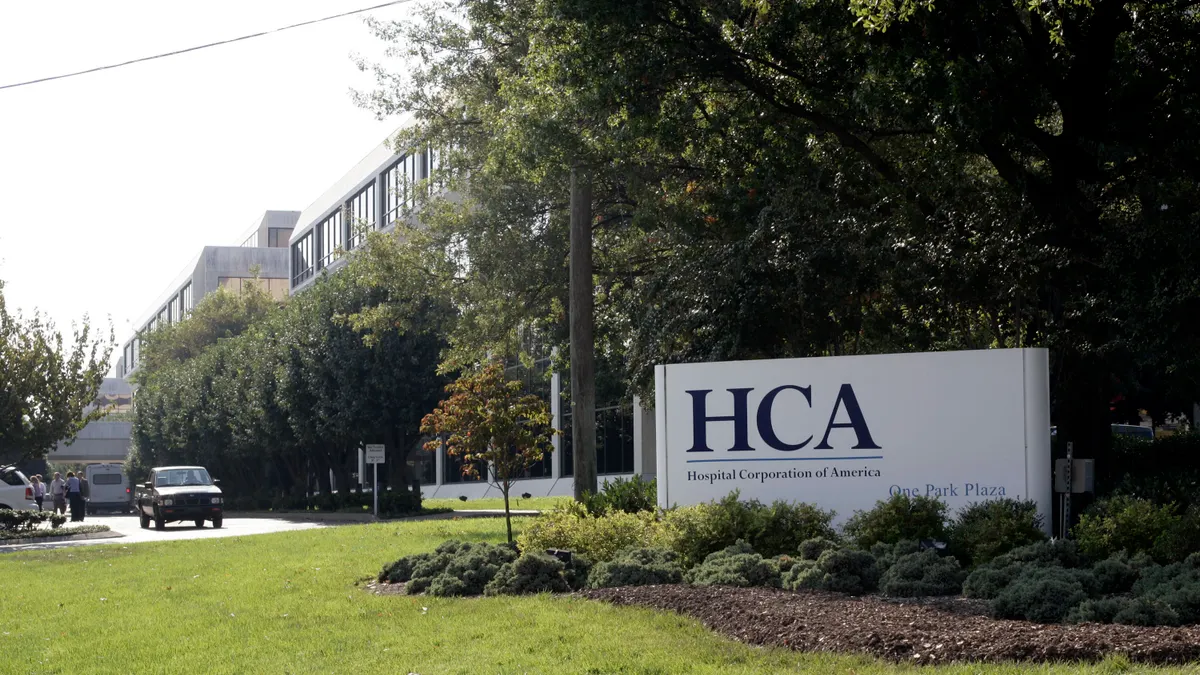This weekend, Jennifer O. will pack up her car in Baton Rouge, Louisiana, and drive her daughter more than two hours to a CVS clinic in Ocean Springs, Mississippi, where she’s heard she might be able to secure a pediatric COVID-19 vaccine.
There are things Jennifer would rather be doing with that time — like taking her daughter to a birthday party — but she feels she has no choice. Jennifer hasn’t been able to find a vaccine for her daughter in Baton Rouge, despite the fact that COVID cases are on the rise across Louisiana. This is the first year she’s failed to secure a vaccine locally, even after scouring pharmacy websites and contacting her pediatrician.
Access to the shots has dried up in some states after HHS Secretary Robert F. Kennedy Jr. removed the shot from the Centers for Disease Control and Prevention’s vaccine schedule for healthy children in May, and the Food and Drug Administration further limited COVID booster shots a few months later.
The changes occurred over objections from several medical groups, including the American Academy of Family Physicians and the American Academy of Pediatrics, which said the new policies stood in contrast to available evidence.
“This year, I called [my pediatrician’s office] and inquired about the COVID vaccine, [and was told,] ‘We have not ordered the COVID vaccine. It’s not recommended for healthy children,’” said Jennifer O., who is being identified only by first name out of concerns she might face retaliation from anti-vaccination colleagues. “My concern is that most parents just won’t go through this hassle, or won’t have the resources to do so.”
Vaccine access is increasingly becoming fractured along state lines, experts told Healthcare Dive. As a result, two nearly identical patients can have vastly different experiences obtaining a COVID vaccine depending on which state they reside in.
In the country’s most conservative states, lawmakers have fallen in line with recommendations from federal agencies and have limited access to vaccines, according to a tracker maintained by the Common Health Coalition. However, other Democrat-led states have issued executive orders to preserve vaccine access.
Experts are concerned that this issue is a harbinger for the future of U.S. healthcare policy, where care is fractured along partisan lines and access increasingly hinges on where patients live.
“It’s a huge problem. Viruses don’t see borders.They don’t care what state you live in,” said Deborah Fuller, vaccinologist and professor of microbiology at the University of Washington School of Medicine. “If you have an outbreak somewhere, it’s a problem for everyone, everywhere.”
Providers contend with confusion and a patchwork of solutions
Since the FDA updated its recommendations for COVID boosters, Kennedy has flip-flopped on whether shots will be available for those who want it. The confusion has sparked alarm among some providers who said it wasn’t immediately clear how to secure shots for their patients.
Many Democrat-led states jumped to address access concerns, with some banding together to craft policy protecting access to vaccines. Still, doctors across the country say it’s been mostly chaos trying to get accurate, up-to-date information about prescribing guidance.
Dr. Sarah Nosal, president-elect of the American Academy of Family Physicians, said her phone has been ringing off the hook with questions from patients and colleagues about vaccine availability.
For one of the first times in her career, Nosal — who practices family medicine in the Bronx — said she didn’t readily have answers to those questions, though that began to change after New York Gov. Kathy Hochul took steps to shore up vaccine access for residents last week.
“No one was giving out vaccines to anyone [before that] because there was not clear guidance,” Nosal said. “It feels like a lot of the intention is to make this really hard and confusing.”
For other providers, it’s been even more difficult. Dr. Rana Alissa, a pediatrician in Florida, said the state’s stance on vaccines has created danger and confusion for her patients. Earlier this month, state Surgeon General Dr. Joseph Ladapo said Florida would end vaccine mandates for school age children and suggested he wants to ban COVID mRNA vaccines entirely.
“Our state went [to a] different level of confusion, doubt and just inappropriateness,” said Alissa, who serves as president of the Florida chapter of the American Academy of Pediatrics. “There’s going to be consequences, and these consequences are not going to be, ‘Well, I got a cold.’ No, there’s going to be death.”
Providers say anti-vaccine rhetoric from the HHS and some state lawmakers is sowing doubt among parents about what information to trust — both in those who have already vaccinated their children and those considering upcoming vaccination schedules. Previously, physicians might have pointed concerned parents to information from the CDC, but now they worry the website is based more on politics than science.
“I think we’re at a turning point here where we have to figure out: Where can people go? And that’s why we’re all confused, because it used to be the CDC. That was our Bible,” said Fuller.
Until such guidance materializes, physicians say they’re spending time they don’t have answering questions about vaccines.
“We don’t have time to educate,” Alissa said, noting the average appointment time is about 20 minutes. “However, we are obligated to make the time. But this time is going to be at the expense of our personal health.”
A harbinger of things to come
Providers and public health experts warn that a discrepancy in healthcare access between states will deepen with time as the country’s ideological differences become more pronounced.
“We joke when we meet in our conferences with other states, ‘Well, I’m glad I’m not in Florida’ or ‘I wish I can move to your state,’ because our jobs are much, much harder in Florida,” said Alissa, saying that patient and local lawmakers’ anti-science sentiment had noticeably picked up since the beginning of Trump’s second term.
Since taking office, the Trump administration has restricted access to gender-affirming care for minors against the guidance of the majority of the medical community. He has also moved to restrict abortion services by rescinding Biden-era guidance protecting emergency abortion services and largely defunding Planned Parenthood, the nation’s largest abortion provider.
Many Red states are imposing their own restrictions on gender-affirming care or issuing harsh sanctions for providers that violate abortion bans. Meanwhile, some Blue states have attempted to preserve access to abortion and gender-affirming care, launching lawsuits to stop what they say is “unconstitutional pressure” on providers and taking legal action to protect some doctors from out-of-state abortion bans.
Experts worry that discrepancies in healthcare across the country could become more pronounced with time. The administration has slashed funds for medical research projects that could help providers better treat illness in underserved communities and rolled back childhood vaccine schedules that were once considered settled science.
“I think we have opened a door to not using science to guide care, and I don’t think it’s going to end just with the major topics,” said Nosal. “As we allow this to progress, our health uniformly will be at risk and [be] different based on the state that you live in…We cannot segment care out like this and keep our country healthy.”





















